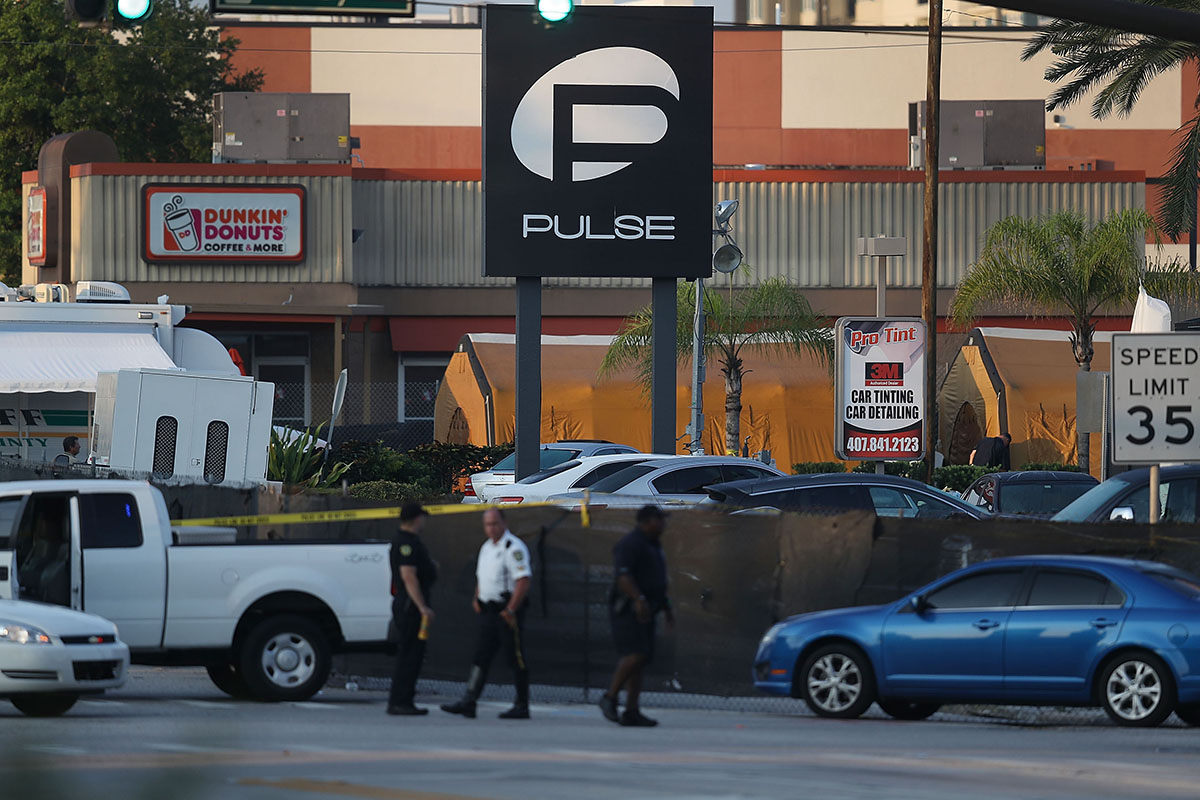Families of three victims of the Pulse nightclub shooting in Orlando, Florida have filed a lawsuit against Facebook, Twitter and Google for providing “support” to the Islamic State terrorist organization to radicalize individuals using social media.

According to Fox News, the federal civil suit argues the online platforms “provided the terrorist group ISIS with accounts they use to spread extremist propaganda, raise funds, and attract new recruits.”
READ MORE: New body cam footage captures chaotic scenes after Orlando Nightclub shootings
Gunman Omar Mateen, who killed 49 people during the attack on June 12, pleged allegiance to the head of Islamic State during the attack. According to reports, Mateen had watched jihadist videos before the attack.
WATCH: Partial transcript of 911 call between Orlando nightclub shooter Omar Mateen, dispatch

The lawsuit was filed by the families of Tevin Crosby, Javier Jorge-Reyes and Juan Ramon Guerrero, who were killed inside the gay nightclub.
“Life has not been easy for me or my whole family,” Juan Guerrero, the father of one of the victims, told Fox News. “It is something I remember and have to live with every day.”
READ MORE: Omar Mateen’s wife denies advance knowledge of Orlando nightclub shooting
Social media has increasingly become a tool for recruiting and radicalization by the Islamic State group and others. Its use by terror groups and supporters has added to the threat from so-called lone-wolf attacks and decreased the time from “flash to bang” — or radicalization to violence — with little or no time for law enforcement to follow evidentiary trails before an attack.
Security analysts suggest that losses on the ground for ISIS caused the terror organization to change it’s online strategy from recruiting supporters to join in the fight against Western forces in Iraq and Syria, to encouraging would-be jihadists to instead stay home and orchestrate terrorist attacks in their respective nations.
WATCH: The battle against the so-called Islamic State has been shifting into a cyber-war. Facebook and Twitter are getting better at shutting down accounts that are being used to spread propaganda. But, is that enough? Mike Le Couteur reports.

YouTube, Twitter and Facebook use automated software to help detect posts that violate their terms of service, including those that depict or encourage violence. They also encourage users to report such material, so it can be reviewed and removed.
READ MORE: Despite recent attacks, ISIS still losing social media war
Social networks have also been working to develop new tools to help remove terrorist propaganda from its websites in services. Earlier this month, Facebook, Microsoft, Twitter and YouTube announced they would join forces in a new program that would create a database of unique digital “fingerprints” to help automatically identify videos or images the companies could remove.
Under the new partnership, the companies promised to share among themselves “the most extreme and egregious terrorist images and videos we have removed from our services — content most likely to violate all our respective companies’ content policies.”
Twitter and Google have not commented on the lawsuit. In a statement, Facebook said the company “takes swift action” to remove terrorist content when it’s reported.”
“We are committed to providing a service where people feel safe when using Facebook,” it said in a statement. “We sympathize with the victims and their families.”
– With files from The Associated Press




Comments